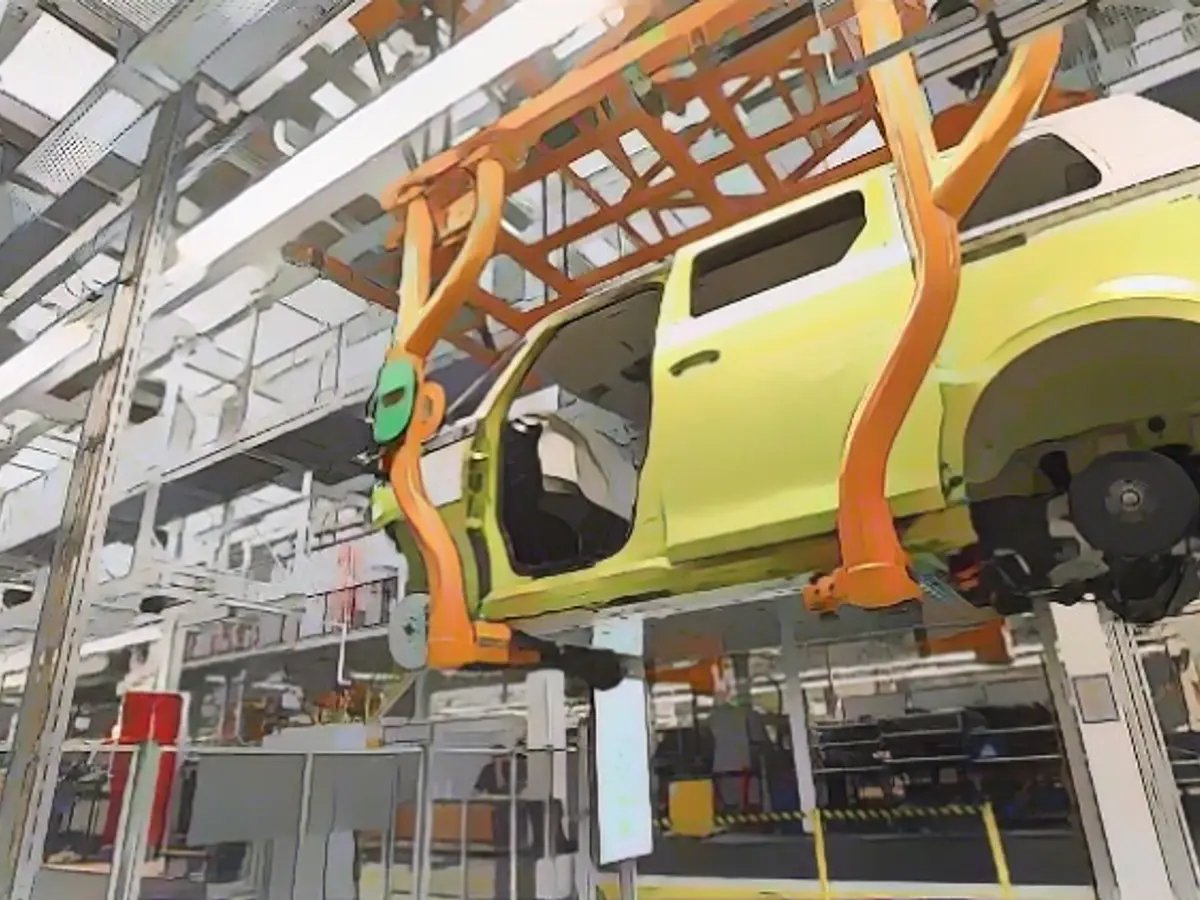Budget crisis can hit car manufacturers hard
Possible consequences of the German government's tight budget are causing displeasure at the car summit in the Chancellery. This is because the climate and transformation fund, which was supposed to finance industrial policy measures, is on the brink. The automotive industry is afraid of falling further behind when it comes to e-mobility.
Business and government representatives demonstrated unity on the expansion of e-mobility at the Auto Summit in the Chancellery. The participants agreed that the target of 15 million fully electric cars on Germany's roads by 2030 must be achieved quickly, explained government spokesperson Steffen Hebestreit. However, the meeting was overshadowed by the budget crisis following the Federal Constitutional Court's ruling on the Climate and Transformation Fund (KTF).
"The participants welcomed the measures to promote the development of semiconductor and battery production capacities," Hebestreit continued. However, many of the coalition government's industrial policy plans - from subsidizing the price of electricity for energy-intensive companies to billions in payments for the establishment of battery and chip manufacturers - are on the brink as a result of the KTF ruling.
Federal Chancellor Olaf Scholz had invited car industry associations, domestic and foreign car manufacturers and suppliers as well as representatives of other industries such as battery cell producers and semiconductor manufacturers to the Chancellery. The focus was on e-mobility and, for example, the production of cheaper e-cars. The ministries of economics, labor, transport, environment and finance were represented from the government side.
Lack of charging infrastructure and high electricity prices
Volkswagen Group CEO Oliver Blume had previously warned of a failure of the German government's electric car targets. "The ramp-up of electromobility in Germany and Europe is slower than was expected just a few years ago," he told the Augsburger Allgemeine newspaper. The main reasons for this development are poorer framework conditions such as the high price of electricity, expired purchase incentives and a lack of charging stations.
The supply and production of vehicles would "not be the possible bottleneck to achieving the coalition's goal", explained Hildegard Müller, President of the German Association of the Automotive Industry (VDA). She also sees the problem primarily in the lack of charging infrastructure and the high price of electricity.
In contrast, the government has pushed ahead with the expansion of the charging infrastructure at full speed, said Federal Minister of Transport Volker Wissing. "There are currently around 100,000 publicly accessible charging points in operation in Germany. That's twice as many as two years ago," he told Handelsblatt. He placed particular responsibility on the manufacturers.
BUND calls for reform of vehicle tax
"It is crucial that broad sections of the population can afford clean mobility," explained Marie-Luise Wolff, President of the German Association of Energy and Water Industries (BDEW). To this end, the environmental organization BUND called for a fundamental restructuring of the tax and subsidy system. Large, heavy and energy-intensive vehicles should no longer be subsidized, BUND car expert Jens Hilgenberg told Redaktionsnetzwerk Deutschland.
At the same time, regulatory measures are needed to ensure that "affordable vehicles with low energy and resource requirements for normal earners" come onto the market more quickly. Hilgenberg called for the abolition or at least a massive change in company car taxation and a reform of vehicle tax towards a system that taxes high-horsepower combustion engines more heavily.
The Federal Chancellery, led by Olaf Scholz, convened a summit to discuss the expansion of electromobility, with a focus on promoting cheaper electric cars. Despite the positive sentiment towards boosting semiconductor and battery production, the meeting was impacted by the budget crisis affecting the Climate and Transformation Fund, causing concern among car manufacturers fearing falling behind in e-mobility.
During the discussions, the German government representatives agreed that the aim of having 15 million fully electric cars on German roads by 2030 should be achieved swiftly. However, the strict budget constraints may affect several industrial policy initiatives including subsidies and payments for battery and chip manufacturers, potentially impacting electromobility progress.
Source: www.ntv.de








